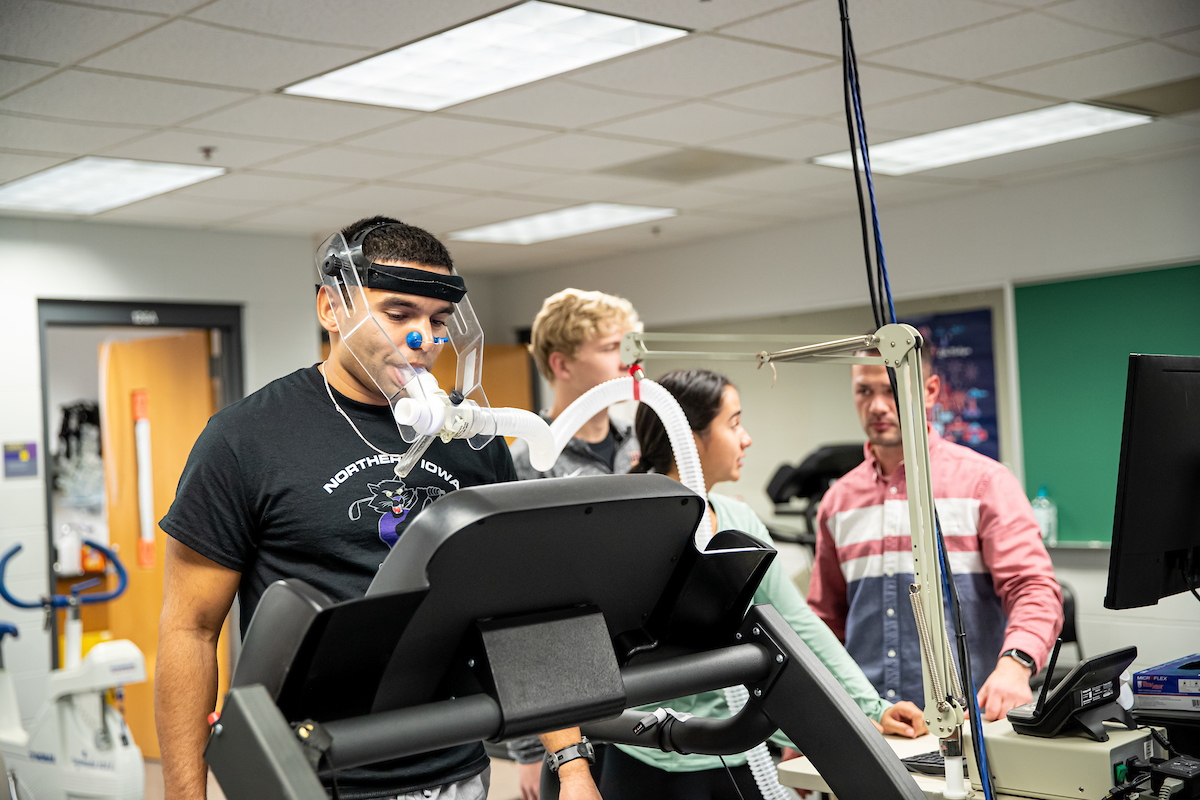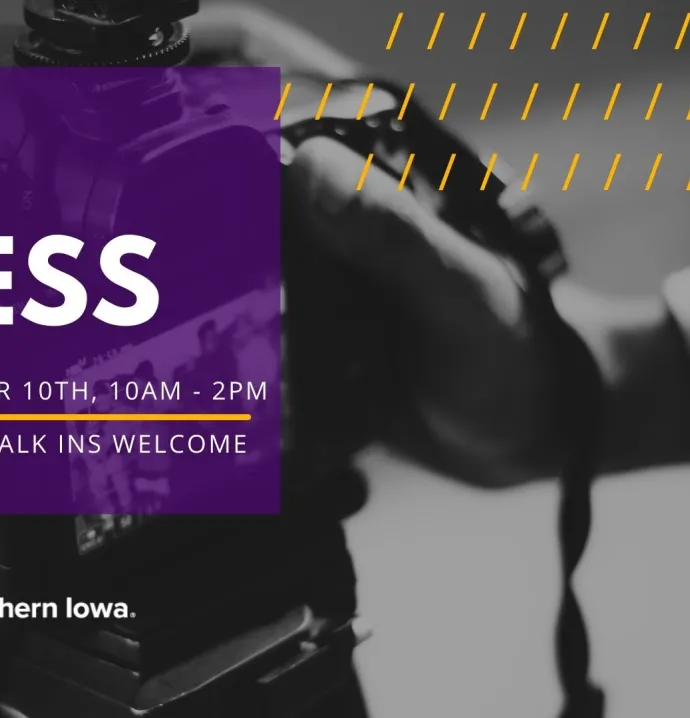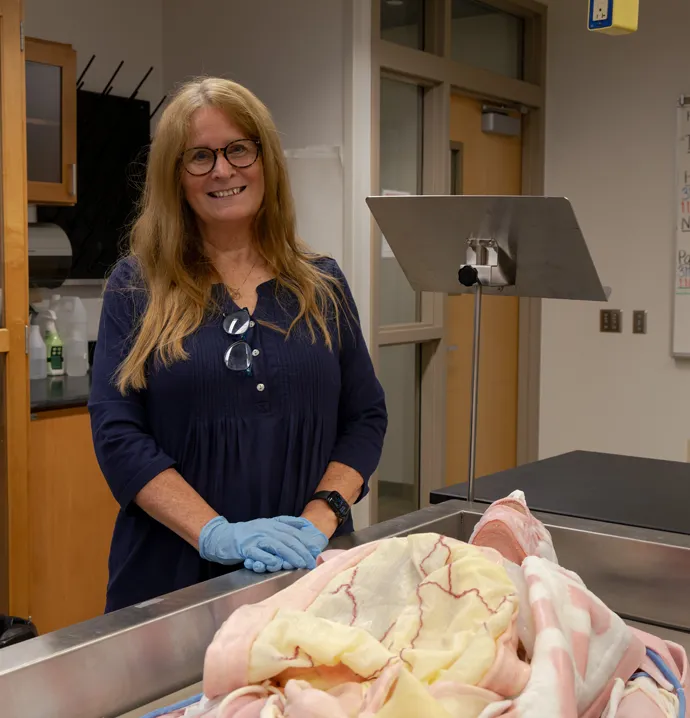What can you do with a master’s degree in kinesiology?
What can you do with a master’s degree in kinesiology?

Are you committed to sports and fitness? A master’s degree in kinesiology is the ultimate way to capitalize on your passion. Although there are many health science majors to consider, kinesiology is one of the most well-rounded. The field takes a holistic approach to educating students about the human body. Here’s what you need to know if you are thinking about getting your master’s in kinesiology.
What is kinesiology?
Before getting into what you can do with a master’s in kinesiology, it’s important to answer “What is kinesiology?” Simply put, kinesiology is the study of human movement. It helps us better understand the connection between movement and health, and how movement can impact someone’s quality of life. It’s a combination of nutrition, public health, anatomy, physiology and chemistry.
Kinesiology is important. You can expect to have a profound impact on the lives of those you work with no matter how you use your kinesiology degree.
Top kinesiology careers
Getting a master’s degree in kinesiology can open up numerous job opportunities. You might work in a health care setting or be employed by a school or even a professional sports team. Here are a few of the top careers you may consider after earning a master’s in kinesiology.
Strength and conditioning coach
If you want to work with athletes directly, becoming a strength and conditioning coach may be your best option. You’ll be close to the action! This job allows you to work with a sports team training the athletes on form and injury prevention techniques. You’ll help athletes improve performance in the safest way possible. As a strength and conditioning coach, you may work with a school, college or university or professional sports team. You might also work for an independent gym.
While some of these coaching positions may not require a master’s degree, earning a master’s degree will set you up for more lucrative opportunities. The average strength and conditioning coach makes almost $47,000.
Tactical strength and conditioning coach
Maybe you love to exercise, but working in organized sports doesn’t appeal to you. In this case, you may be interested in working as a tactical strength and conditioning coach to help individuals known as tactical athletes who need to stay active for their jobs. Examples include police officers, firefighters and military personnel. While these tactical athletes don’t have traditional sporting events to train for, fitness is paramount to their ability to perform on the job. So they need strength and conditioning coaches to help them enhance their performance without injuring themselves.
Being a tactical strength and conditioning coach can be a very rewarding career as you get to play a role in helping first responders and military members stay safe and ready for action. Since this is another type of strength and conditioning coach, the average salary is still almost $47,000.
Sports manager or sports administrator
If you have a mind for both sports and business, working in sports management or sports administration could be your calling. In these roles, you oversee a wide range of components for a sports team, from getting endorsements to ensuring compliance. You’ll help with hiring staff members and balancing the budget. You might work in high school, college or professional sports.
Working as a sports manager or administrator requires strong problem-solving and communication skills. You’ll also have to work with a lot of people, so if you thrive when working in a team setting, this could be the best kind of job for you. The average salary for a sports manager is $55,000.
Health and wellness director
If you’d rather work with the general public over athletes and sports teams, you could be interested in becoming a health and wellness director. As a health and wellness director, you’ll develop, supervise and track the progress of programs created to promote wellness. You may also help employees with their health insurance. You might work in a corporate setting, health care facility, nonprofit organization or government agency. Depending on where you work, you might support the health of your organization or of the broader community.
If you want to be a health and wellness director, it’s important to have strong interpersonal skills that allow you to motivate others. You can expect to be well-paid as a health and wellness manager, making, on average, nearly $71,000.
Exercise physiologist
If you’re a big believer in the way that physical fitness can help you live a healthier life, you’ll love being an exercise physiologist where you create fitness plans based on a client’s medical history and the results of different tests you may perform. You’ll look at physical fitness as the key to improving your clients’ health and helping them achieve a higher level of physical fitness in terms of flexibility, cardiovascular function and body composition. It’s especially common for exercise physiologists to work with clients who have chronic conditions like lung disease or a heart condition.
Typically, you’ll find exercise physiologists working for themselves or a health care provider. The average salary for exercise physiologists is more than $50,000.
Further education
Lastly, there’s always the option of continuing your education even after a master’s degree. This can set you up for lucrative kinesiology careers as an athletic trainer, physical therapist, occupational therapist or chiropractor. You might also want to become a professor to pass on what you’ve learned about kinesiology to others.
Earn your master’s degree in kinesiology from the University of Northern Iowa
Put your love of fitness to good use by earning your Master of Arts in Kinesiology and Sport Performance from the University of Northern Iowa. Whether you’re a new graduate or you’ve been out of school for a while and are hoping to advance your career opportunities, this degree will set you up to succeed in numerous in-demand kinesiology careers. You’ll have access to state-of-the-art equipment and technology and you’ll be mentored by seasoned faculty members at every step of your education.
Find out more about earning your master’s degree in kinesiology at the University of Northern Iowa today!
Request Information
As Iowa's only regional comprehensive university, we are designed to provide critical coursework with real, practical fieldwork.
Real, relevant academic excellence for a world that expects future-ready graduates.
- 94% of UNI grads find success within six months of graduation.
- UNI has a 100% approval rating among graduate students applying to doctoral programs.
- UNI has three state-of-the-art labs to provide kinesiology students with hands-on experience.
- UNI is ranked a top regional public university by U.S. News & World Report.




